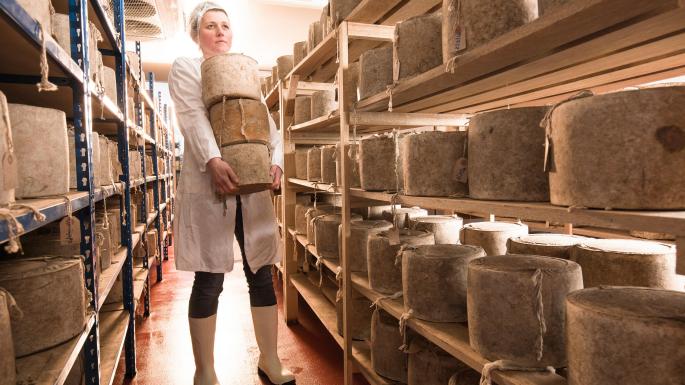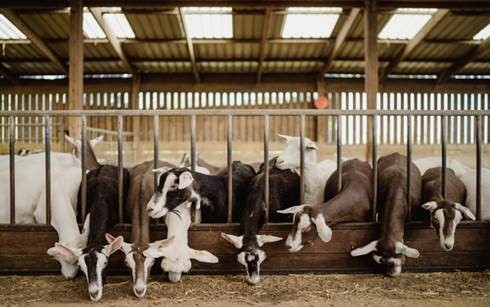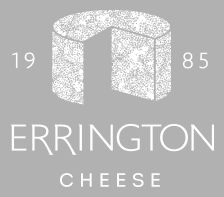

Errington Cheese
Humphrey Errington started making sheep’s cheese on his family run farm in the 80’s and is justly renowned for the famous ewe’s milk Lanark Blue, and White. His daughter Selina now runs the cheese-making business and introduced Corra Linn, a hard sheep’s cheese matured for 6 – 10 months made with traditional lambs rennet.
They recently invested in a herd of Yorkshire Goats from a High Health Status Herd and are already producing award-winning cheeses with their milk, all produced on farm including Biggar Blue, a raw milk blue goats cheese made from our own goats milk in Lanarkshire, it is made with vegetarian rennet and matured for around 2 months and Elrick Log, a raw milk ashed goats log. Tinto is a raw semi hard goats milk cheese made from vegetarian rennet and matured for 2-4 months.
"We currently run around 450 Lacaune dairy sheep on our farm. We are currently trying to increase the numbers to keep up with demand. On the farm we have a small team of people to assist Andrew with lambing and milking.
In the cheese rooms we are very lucky to have a loyal team of staff, some of whom have been with us for over 20 years! Our cows' milk is bought from Mossigeil, a family-run farm producing very high quality organic milk.
We moved from Dumfriesshire to Lanarkshire in 1981, running as a mixed farming enterprise of beef cattle and sheep. My Father Humphrey Errington started looking at ways of diversifying and became interested in sheep milking and ewes milk cheese because of the ancient tradition of this activity in the Upper Clyde area, and because it offered the chance to add value to a farm product and be free of dependence on government subsidies.
Cheese making began in 1983 on a small scale and now the farming enterprise is geared to the need for ewes' milk in order to keep up with the growing demand for the cheese. Because sheep milking in the winter months is not a practical possibility in Scotland, in the late 1980's we began buying in cows' milk to keep us busy in the winter. This inaugurated the range of cows' milk cheeses, still of traditional local types."
At A Glance
 Location
LocationWalston Breahead Farm, South Lanarkshire
Farmer
Selina Cairns
Cheeses Produced :
Lanark Blue
Lanark White
Cora Linn
Wee Welston
Elrick
Biggar Blue
Lancelot
Cheeses No Longer Produced :
Dunsyre Blue